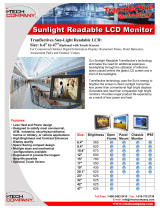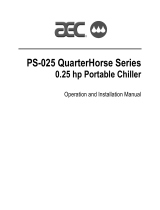
11
RLC-PRC020-EN
Selection
Procedure
Trane Series R chiller performance is
rated in accordance with the ARI
Standard 550/590-1998 Certification
Program. Chiller selection assistance and
performance information can be
obtained by using the Series R chiller
selection program, available through
local Trane sales offices.
Performance
The computerized Series R chiller
selection program provides performance
data for each possible chiller selection at
both full-load and part-load design
points, as required.
It should be noted that changing the
number of water passes or the water
flow rates will generally alter the
performance of a particular chiller. To
attain maximum benefit from the wide
range of chiller models and options
available, designers are encouraged to
first develop performance specifications
and then use the chiller selection
program to optimize all selections. This
will help ensure selection of the
compressor-evaporator-condenser
combination that most closely meets the
job requirements. To optimize system
performance, all selections should also
be balanced with other system
components.
Fouling Factors
ARI Standard 550 includes a definition of
clean tube fouling. The recommended
standard fouling adjustments are 0.0001
hr-sq ft-deg F/Btu (0.044 sq m-deg C/kW)
for the evaporator and 0.00025 hr-sq ft
deg F/Btu (0.0176 sq m-deg C/kW) for the
condenser, from an increment of 0.0000
“clean.” Chiller specifications should be
developed using the most current
standard fouling factors.
Unit Performance with Fluid Media
Other Than Water
Series R chillers can be provided with a
wide variety of fluid media other than
water, including ethylene glycol and
propylene glycol— in the evaporator,
condenser or both. Chillers using media
other than water are excluded from the
ARI 550/590-98 Certification Program,
but are rated in accordance with ARI
Standard 550/590-98. Trane factory
performance tests are only performed
with water as the cooling and heat-
rejection media. When considering
selection of media other than water,
contact the local Trane sales office for
chiller selections and factory
performance testing information.
Fluid media other than water lowers the
heat transfer coefficient, and therefore
reduces chiller performance. In general,
it is good practice to hold the percent
glycol added to within the minimum
allowed by the Trane selection program,
based on either (a) unit operating
temperatures, or (b) the operating
temperatures the evaporator or
condenser water will experience under
its full range of conditions. Adding more
glycol than required for the specific
application is equivalent to selecting a
less efficient chiller. Lower-viscosity
glycols such as ethylene will have less
adverse impact on chiller performance
than higher-viscosity glycols such as
propylene.
Dimensional Drawings
Dimensional drawings provided for
selection purposes illustrate overall
measurements of the unit. The
recommended service clearances are
those required to easily service the
Series R chiller.
All catalog dimensional drawings are
subject to change, and current submittal
drawings should be referenced for more
detailed dimensional information.
Dimensional drawings are also available
from the selection program. Contact the
local Trane sales office for submittal
information.
Electrical Data Tables
Compressor motor electrical data is
provided in the data section for each
compressor size. Rated load amperes
(RLA), locked rotor wye amperes (LRA)
and expected inrush for the Wye-delta
and Solid State Starter configurations
are shown.
Although the terms “LRA” and
“expected inrush” are often used
interchangeably, the distinction applied
here is that LRA is the rated inrush for
the motor, but expected inrush is that
allowed by the starter, based on the
specific configuration.
Selecting starters in the Wye-delta or
Solid State configuration lowers
expected inrush vs. the Delta (or “across-
the-line”) configuration. A Solid State
Starter configuration lowers the
expected inrush by approximately 50
percent, while Wye-Delta lowers it by
approximately 66 percent.





















